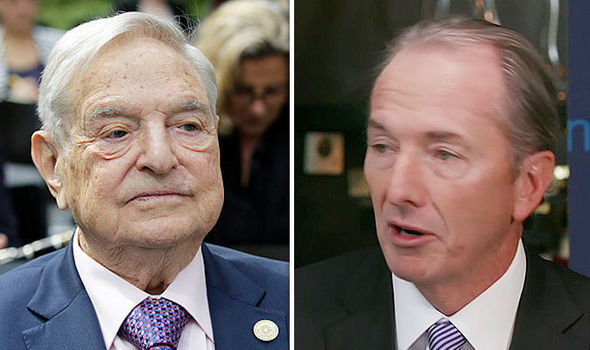Billionaire George Soros, who became famous for speculating on currencies, especially in 1992 when he made one billion pounds speculating on the pound, has been slammed by James Gorman, the chief executive of Morgan Stanley, over his doomsday prediction of a global economic crisis made earlier in the week.
At a think-tank conference on Tuesday, Soros said the EU was in an “existential crisis” and maybe “headed for another financial crisis”.
But Gorman played down the economic risks raised by Soros, which were supposedly triggered by the refugee crisis aiding the rise of “populist” politicians and an era of austerity following the last financial crisis.

“Honestly I think that’s ridiculous,” the banker said in an interview with Bloomberg Television Thursday when asked about the comments.
“I don’t think we’re facing an existential threat at all.”
Soros gave his speech at a time when Italy’s political system was in chaos. President Sergio Mattarella this week vetoed the appointment of the Eurosceptic finance minister Paolo Savona, proposed by the far-right parties Five Star and the Northern League, which halted the populist parties’ bid to form a coalition.
Gorman likened the unrest in Italy to the UK’s Brexit vote and said there was a “sense the average performance of the economy is better than the individual performance of citizens” in each country which was leading to the rise of populism.
But he added: “I don’t think the eurozone is in jeopardy.”
In the US, Gorman said his “gut feeling” was that the Federal Reserve would hike interest rates four times this year as it tried to return monetary policy to normal, though he conceded that wage pressures had not crept high enough to push up inflation which was “why we’ve taken this long to get this far, which is not very far at all”.









